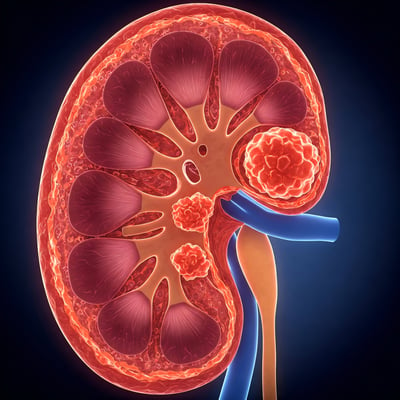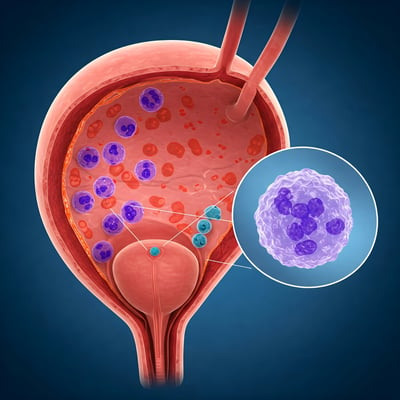🔬 Kidney Cancer
Kidney cancer begins in the cells of the kidneys—two vital organs that filter waste from the blood and produce essential hormones. With early detection and the availability of advanced treatments, kidney cancer is highly treatable, and many patients experience excellent recovery and long-term wellness.
✅ Common Signs to Watch For:
Blood in the urine (hematuria)
Pain in the side or lower back
Unexplained weight loss
Persistent fatigue
A lump or mass in the abdomen
Many cases are found incidentally during imaging tests for unrelated conditions, offering a valuable opportunity for early and effective treatment.
🌟 Treatment Options for Kidney Cancer:
Treatment is tailored based on the cancer’s stage, size, and the patient’s overall health. Common options include:
Surgery:
The primary treatment for most kidney cancers. Options include partial nephrectomy (removing just the tumor) or radical nephrectomy (removing the entire kidney), with excellent success rates.
Targeted Therapy:
Uses medications that specifically block the growth of cancer cells by acting on molecular targets.
Immunotherapy:
Empowers the immune system to identify and destroy cancer cells, showing impressive results in advanced cases.
Ablation Techniques:
Minimally invasive options like radiofrequency ablation or cryoablation are available for small tumors.
Active Surveillance:
For slow-growing or small tumors, close monitoring may be the best approach, especially for older patients or those with other health concerns.


🧠 Understanding Kidney Cancer:
The most common type of kidney cancer is renal cell carcinoma (RCC), which typically starts in the lining of the kidney’s filtering system. Early-stage kidney cancer often presents with few or no symptoms, making regular check-ups and imaging important, especially for those at higher risk.
💧 Bladder Cancer
Bladder cancer occurs when abnormal cells grow in the lining of the bladder, the organ that stores urine. With early detection and a wide range of effective treatment options, bladder cancer is highly treatable, especially in its early stages. Ongoing monitoring and personalized care are key to successful outcomes.
✅ Common Signs to Watch For:
Blood in the urine (even if painless)
Frequent or urgent urination
Pain or burning during urination
Lower back or pelvic discomfort
These symptoms should be promptly evaluated to ensure early diagnosis and optimal care.
🌟 Treatment Options for Bladder Cancer:
Bladder cancer treatment is tailored based on the type, stage, and grade of the tumor. Common treatment approaches include:
Transurethral Resection (TURBT):
A minimally invasive procedure to remove tumors from the bladder lining, often used in early-stage cancers.
Intravesical Therapy:
Medicine delivered directly into the bladder (such as BCG therapy) to treat early-stage cancers and prevent recurrence.
Surgery:
Partial or radical cystectomy may be recommended for more advanced disease. Urinary function can be preserved or reconstructed with modern surgical options.
Chemotherapy:
Used before or after surgery, or systemically for more advanced cases.
Immunotherapy:
Helps the immune system target and destroy cancer cells, with promising results in bladder cancer.
Targeted Therapy:
Focuses on specific genetic or molecular features of the cancer to improve treatment response.


🧠 Understanding Bladder Cancer:
The most common type is urothelial carcinoma (also known as transitional cell carcinoma), which starts in the cells lining the inside of the bladder. Bladder cancer is often detected early due to noticeable urinary symptoms, allowing timely and effective treatment.
contact@drrunusharma.com
© 2025 by Dr. Runu Sharma. All rights reserved design and developed by Aline Solutions Online
First Floor, RS Aesthetics and Clinics Bishan Tower, 17/1-A, Canal Rd, near Mata Bala Sundari Mandir, Jakhan Dehradun, Uttarakhand 248195, India.
